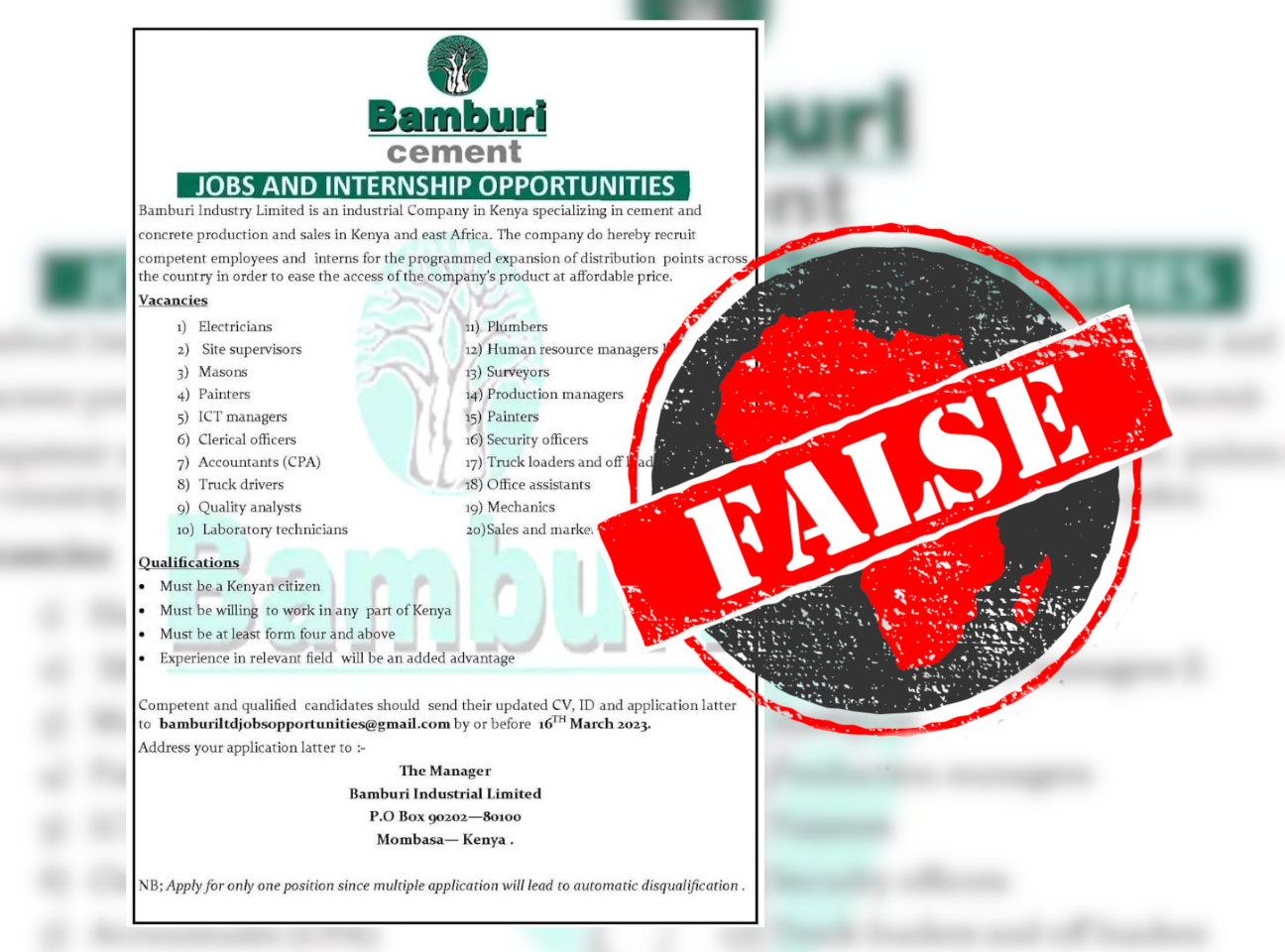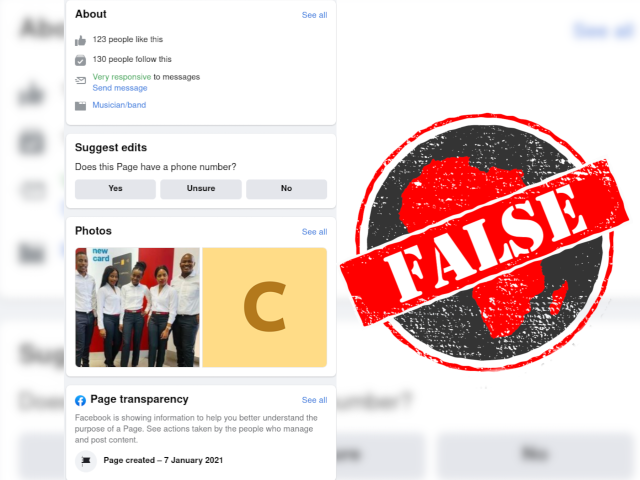IN SHORT: As a large industrial manufacturer in Kenya, one could expect Bamburi Cement to be hiring. But these jobs advertised online are not real.
An ad was posted on Facebook offering jobs and work experience with Bamburi Cement, a Kenyan company that specialises in producing cement and concrete.
The ad claims that to make its product more accessible and affordable, the company wants to recruit competent employees and trainees.
The jobs advertised include electricians, laboratory technicians, surveyors, plumbers, painters and lorry drivers.
According to the ad, applicants must be Kenyan citizens, willing to work anywhere in Kenya and have a minimum of a form 4 education. Experience in the relevant field is an added advantage.
By 16 March 2023, interested candidates should send their up-to-date CV, identity card and letter of motivation to a listed Gmail address.
The post was also published here.
But is this a legitimate job offer? We checked.

Jobs not found on the Bamburi Cement website
We searched the careers section of the Bamburi Cement website but could not find the jobs advertised on Facebook.
Instead, we found that Bamburi had posted vacancies for an internal audit manager, a procurement category manager and a legal compliance data protection officer.
Bamburi Cement dismissed the ad as “fake” on its verified Facebook page.
“Beware of fake Job Ads from scammers pretending to be us or representing us. At no point in the recruitment process do we ask for money. All our positions are publicly advertised in the Career section of our website: www.lafarge.co.ke,” Bamburi Cement wrote.
Republish our content for free
For publishers: what to do if your post is rated false
A fact-checker has rated your Facebook or Instagram post as “false”, “altered”, “partly false” or “missing context”. This could have serious consequences. What do you do?
Click on our guide for the steps you should follow.
Publishers guideAfrica Check teams up with Facebook
Africa Check is a partner in Meta's third-party fact-checking programme to help stop the spread of false information on social media.
The content we rate as “false” will be downgraded on Facebook and Instagram. This means fewer people will see it.
You can also help identify false information on Facebook. This guide explains how.



Add new comment